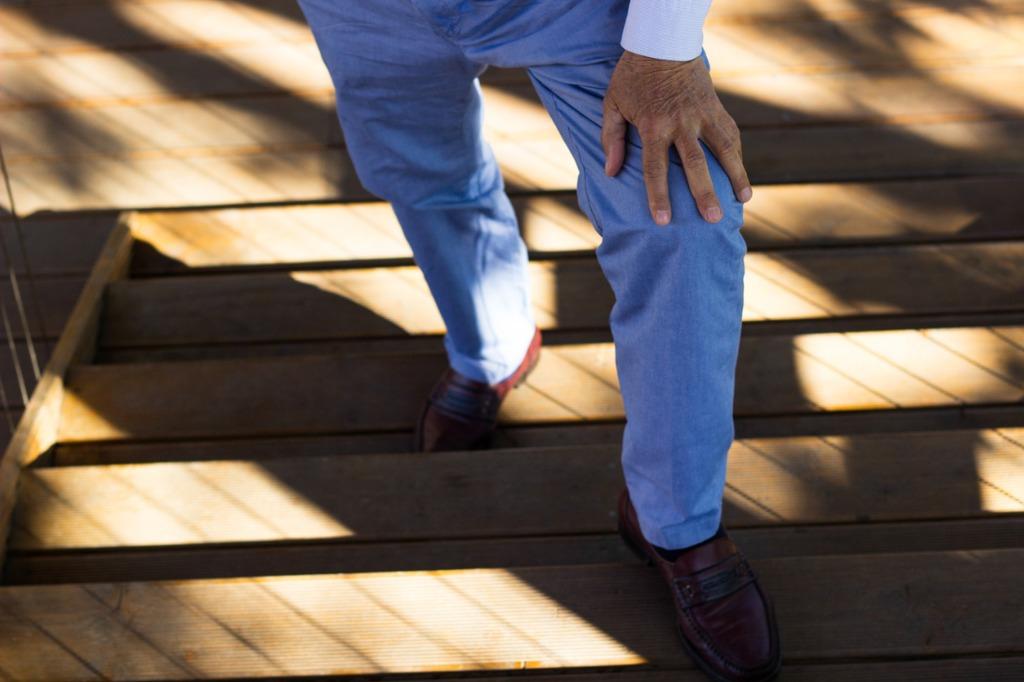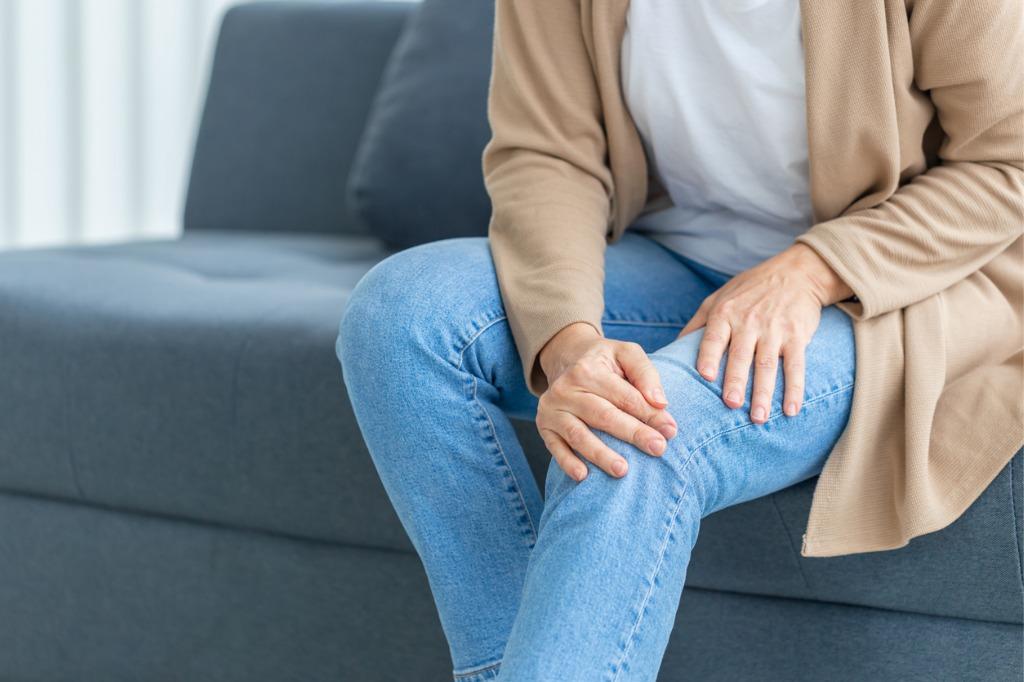Why You May Have Knee Pain When Walking Up the Stairs

Why You May Have Knee Pain When Walking Up the Stairs
The knee is a common area of pain for many people. In fact, frequent knee pain affects roughly 25% of adults and often limits their ability to do everyday activities. For example, you may notice knee pain when walking upstairs, which can be troubling if you don’t know the exact reason behind it.
Causes of Knee Pain When Walking Up the Stairs
While there are many potential causes of knee pain, a few specific knee conditions may cause pain when trying to reach the top of the stairs.
Chondromalacia
This condition is more commonly known as “runner’s knee” and occurs when the cartilage under the kneecap is damaged. Chondromalacia may be caused by several factors, including:
- Trauma to the patella
- Dislocation of the kneecap
- Overuse of the knee joint
- Misalignment of the kneecap
- Osteoarthritis
- Rheumatoid arthritis
The symptoms of runner’s knee are best described as a dull ache in the front or middle of the knee joint behind the kneecap. The pain is usually worse when going up and down stairs, as well as sitting for long periods with the knees bent. This condition may also cause the knee joint to catch or give out. If you are experiencing pain while climbing the stairs, this may be a tell-tale sign of chondromalacia.
Osteoarthritis
Osteoarthritis of the knee is a condition in which the cartilage that cushions the knee joint breaks down. This condition is caused by a combination of wear and tear and aging. As the cartilage in the knee joint breaks down, the space between the bones in the knee begins to narrow. This may cause several symptoms, including:
- Pain in the knee joint that is worse with activity
- Stiffness and swelling in the knee joint
- A grating or creaking sensation
- Limited mobility
- Locking or catching of the knee joint
Osteoarthritis is a progressive condition, meaning it will worsen over time. As the symptoms of osteoarthritis progress, you may find it increasingly difficult to walk upstairs.
Ligament Injuries
In addition to runner’s knee and osteoarthritis, another common reason your knee may hurt when going upstairs is a ligament injury. The knee joint is held together by strong bands of tissue called ligaments. There are four main ligaments in the knee joint, which include:
- The anterior cruciate ligament (ACL)
- A posterior cruciate ligament (PCL)
- The medial collateral ligament (MCL)
- The lateral collateral ligament (LCL)
An injury to these ligaments may cause pain, swelling, and instability in the knee joint. Ligament injuries are often caused by a sudden change in direction while bearing weight on the knee, such as during a sports injury.
Preventing Knee Pain When Walking Up the Stairs
If you are frequently experiencing pain in your knee, there are several things you can do to prevent pain when going upstairs. Using proper form is key to preventing further damage to the knee joint. When going upstairs, be sure to:
- Use your whole foot to step on each stair
- Keep your knees aligned with your toes
- Avoid putting all of your weight on one leg
- Push off each step from your heel
Furthermore, using handrails when climbing stairs is always a good idea, as this may help take some pressure off your knees. Finally, be sure to wear supportive shoes with good arch support to help reduce the stress on your knees.
Treatments for Knee Pain
There are several ways you may find relief from knee pain, depending on the underlying cause. For example, chondromalacia is often treated with physical therapy, which may help strengthen the muscles around the kneecap and improve alignment.
For osteoarthritis, treatments may include weight loss, pain relief medication, and knee joint injections. In some cases, surgery may be necessary to repair ligament damage or replace a damaged knee joint. In addition, strengthening the muscles around the knee joint may help stabilize the joint and prevent further damage. If you are experiencing knee pain, be sure to talk to your doctor about the best treatment options for you.
Treat Your Knee Pain with Motion Orthopaedics
If you are experiencing knee pain that is preventing you from going about your daily activities, the team at Motion Orthopaedics can help. Our comprehensive approach to knee care includes everything from diagnostics and imaging to treatment and rehabilitation.
Motion Orthopaedics is devoted to maximizing our patients’ quality of life. We achieve this by providing compassionate, individualized care and innovative solutions for our patients. If you are ready to start climbing stairs pain-free, contact us today to schedule an appointment.




